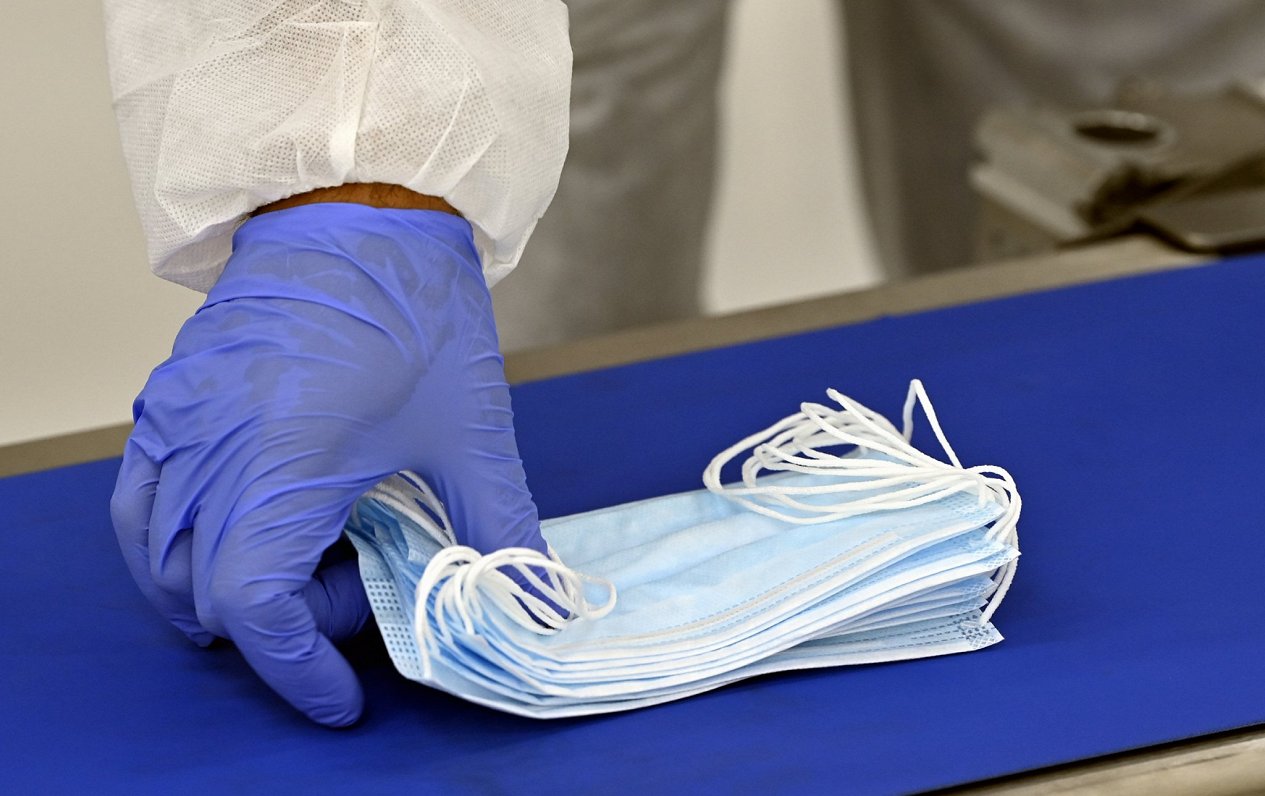VK has transferred the information to State Police's Office for Combating Economic Crimes, which has started an investigation into whether there was collusion in the selection of suppliers.
VK said in a media statement that it had assessed the process of purchasing individual protective devices - protective masks and respirators - from the beginning of March to April. The Ministry of Health had €11.7 million available for purchases of personal protective equipment. Of these, the National Health Service (NVD) and the Emergency Medical Service (NMPD) spent €5.7 million on purchases of protective masks and respirators from five suppliers.
As of mid-February, the supply of protective equipment was difficult and highly competitive throughout Europe. In response to this, the Latvian government allowed the provisions of the Public Procurement Law to be waived for the purchase of protective equipment. In line with the European Commission's recommendations, deviations from the procedures for assessing the standard of protective equipment were also allowed. The Cabinet (MK) determined a new procedure for carrying out quality assessment procedures only on April 9.
The auditors did not find an answer as to why these procedures took such a long time to be developed.
“Following the audit, it has to be acknowledged that we did not take timely measures in our country to ensure that the procurement procedures are transparent, nor were there national guidelines for purchasing in a situation where the Public Procurement Law is not applied. Consequently, the public rightly raised the debate on the lack of transparency in the process of purchasing protective equipment, which created soil for suspected corrupt transactions. Although this was not an easy time for any of the decision-makers, it should be acknowledged that a number of decisions came very late,” State Auditor General Elita Krūmiņa said in a statement to the media.
The first case of COVID-19 was detected in Latvia on March 2. On March 3, MK allocated €1.2 million to purchase medical equipment, personal protective equipment, medicinal products for epidemiological security purposes. The NMPD, however, managed to purchase only 48% of the planned protective masks and 12% of the respirators.
NMPD and NVD purchases of personal protective equipment were based on the calculation and needs of the health department as a priority. At the same time, NVD's purchases of protective equipment were made with a reserve to allow stocks to be distributed as long as possible to the needs of other departments. By March 27, it was not known how much and what kind of personal protective equipment was needed at national level.
VK said that the health department purchased protective equipment in the circumstances where it was necessary to act quickly and decisively, but never defined the requirements for making acquisitions. Consequently, purchases under preferential conditions was solely the responsibility of the person who made the purchase.
In assessing the purchasing process for NVD, the State Audit Office concluded that there had been one-on-one decisions, creating a risk of corruption.
Although the NVD, by oral order of the Director, set up a working group on the purchase, the auditors failed to obtain any documents on its activities. VK said that during the whole process the actions of decision-makers were not documented: the agreement with suppliers came verbally, over telephone, WhatsApp and the like.
Therefore, decision-making is not traceable and cannot be assessed by audit methods. Potential corrupt practices should be identified by operational methods.
The State Audit Office has transferred all the information obtained from the audit to the State Police's Economic Crimes Prevention Board, which has commenced an examination, including seeking answers to the question whether there is a secret agreement in the selection of suppliers.
During the process, NVD did not publicly disclose all offers received, but only about 65 suppliers, indicating that the list would be updated. This limited the industry's ability to monitor the acquisition process.
At the same time, VK praised the actions of NMPD and NVD in a situation where, in the event of a shortage of personal protective equipment, information on counterfeits, the health department services organised sample quality testing on their own initiative, involving universities, hospital laboratories and the Consumer Rights Protection Center and the Health Inspectorate. However, no checks were carried out on all goods delivered.
VK recommends that there be a State Civil Protection Plan and Emergency Medicine Plan in place.






























